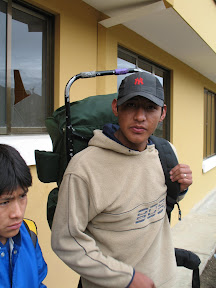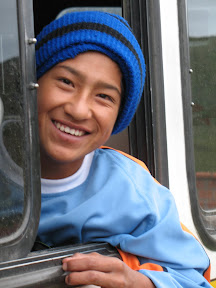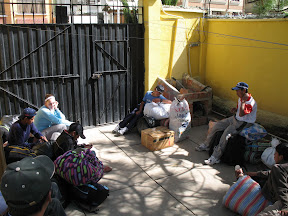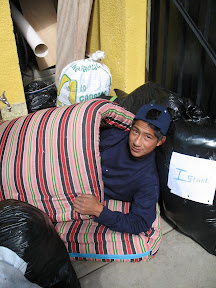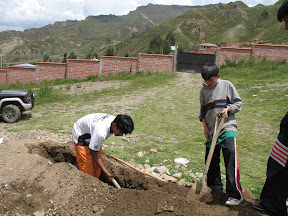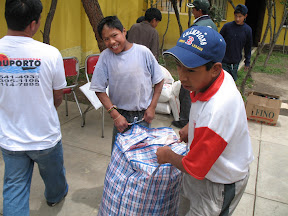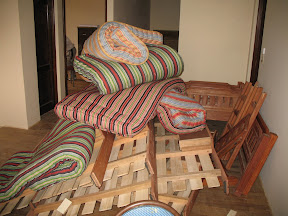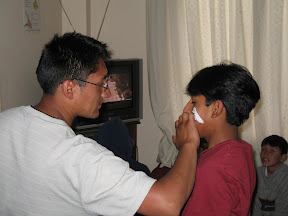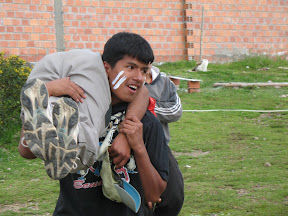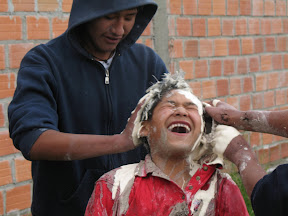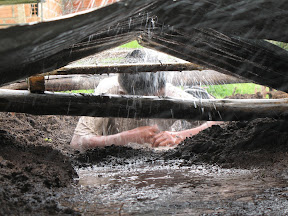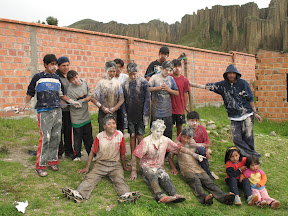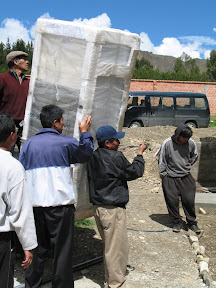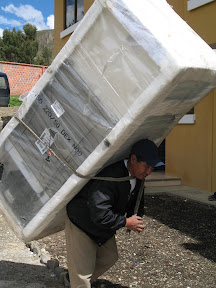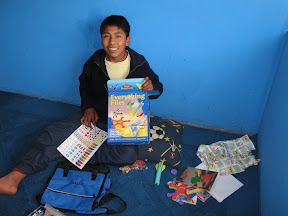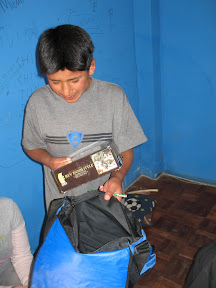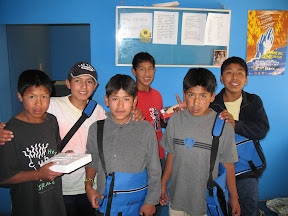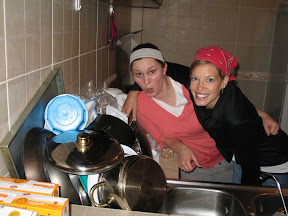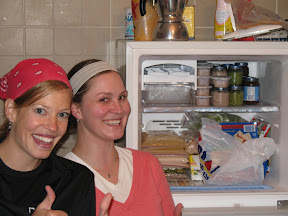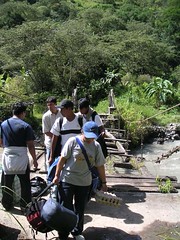What if his eye is all red and gooey?
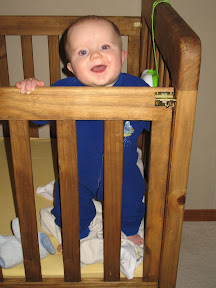 |
| From Ethan - Janua... |
So, instead of swimming and soccer and canned sardines in tomato paste (traditional camp food here), we're back to work again this week. I'm currently working on a complete medical guide for all of the staff in our homes. With so many kids, and the number of kids only going up, our staff encounter a lot of basic medical problems (colds, minor cuts, earaches, stomachaches, etc.) and some emergencies as well (broken bones, serious infections, etc.). In the past when a kid was sick, the staff took them to a public hospital at the other end of town. However, the hospital is very far away (at least an hour or more to get there by public transport) and the quality of care can vary quite a bit. Also, many street children are treated at the same hospital, and we have found that exposing our kids to current street children can make their recovery process more difficult. About a year ago, I was able to negotiate a contract for emergency and specialized cases with a private clinic close to all of our homes that has much higher quality of care. I also contacted a wonderful pediatrician who has agreed to take on our basic cases (earaches, check-ups, etc.) for a very low fee.
What remains to be done is create a resource for our staff that allows them to 1) identify important symptoms, 2) determine whether medical intervention is necessary, 3) decide whether the problem can be treated at home, requires a doctor's visit, or is an emergency, and 4) provide medical treatment in the home when appropriate. So that's what I'm doing. I found a two-volume book, "The Pediatrician in the Home," which was written by a Bolivian pediatrician. The good thing about the book is it does a decent job of explaining a large number of common medical conditions. It also has a section for each illness that tells you when you should call the doctor. The downside is that the entire book is directed towards the treatment of 0 to 2 year olds. This being the case, some illnesses aren't relevant (not too worried that a 14-year-old is going to have colic, for instance), some treatments aren't relevant (a sick teen probably doesn't need Tylenol drops), and even some of the indicators of when to take the child to the doctor aren't relevant (a teen with a fever of 102 degrees F isn't so troubling as a two-month-old with the same fever). There are also some antiquated treatments in the book that need to be wiped out all together. One that particularly surprised me was the doctor's suggestion to give aspirin to baby for everything from fevers to aches and pains. (If you don't know why that's not a good idea, check out http://www.reyessyndrome.org/default.htm). The doctor even mentions Reye's Syndrome in recommending that the parent not give aspirin if the child might have chickenpox. I guess he figured in any other case, it's ok. Anyway, having a foundation on which to build this resource for the staff has been helpful. However, by the time I'm done, I wouldn't be too worried about copyright law (if they had such a thing in Bolivia) because the finished product will be quite distinct from the original.
I'm excited to finally be able to give the staff this resource. Before we came, they just took the kids to the doctor for every little problem. This was a drain on our precious human resources and in the loaded schedule the kids have, they always end up missing out on some important event. Now that we are here, I get a lot of phone calls describing symptoms and asking what to do and should we go to the doctor. I give kudos to any doctor who tries to diagnose over the phone-- it's not always very easy. I've heard a lot of "I don't know, he just says he doesn't feel good" and half-stories like "Well, his eye just started to hurt for no reason." (Here's that conversation: Are you sure? No dust got in it, he didn't get hit in the face? It's not gooey or anything, it just hurts? Really?...... Well, he was watching some guy weld a piece of metal this morning. Could that be it?.... Um, yeah. That's not good.) so providing this resource will allow our staff to take control of this issue and not have to worry about whether they'll get a hold of me or someone else when a kid gets sick.
So that's one thing I've been up to this week.

